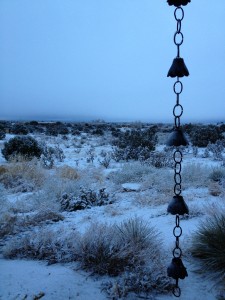 Dealing with blog post tags is an ongoing part of my life.
Dealing with blog post tags is an ongoing part of my life.
I know, I know – it doesn’t count as an actual problem. Still, the labels I choose to index the various things I’m writing and talking about, provide a certain insight into how I see things at different points in my life.
See, the thing about blog post tags is that I don’t have a good system for assigning them. I’ve tried a few things, but it’s still a semi-random and more-than-a-little subjective. WordPress will suggest labels from my existing ones as I type them into a box, but it’s kind of like looking a word up in the dictionary – you have to have kind of an idea of how to start it before you can get close. It becomes a problem for me, because I sometimes want to look up an old blog post – something I know I wrote about before – and I have to play this guessing game with myself to figure out how I might have tagged it at the time. I’m right less than half the time.
So when I label current posts, I try to strategize what my future self will think of to look it up under. This means I’m playing this eternal guessing game with my past and future selves, which probably does not speak well for my long-term sanity.
I have this fantasy, you see, that I would be incredibly organized and *always* tag the same concept with the same tags. This would make the scientist in me happy.
However, I’ve recently realized part of the problem: concepts for me drift over time. They don’t get the same tags because I don’t think of them in the same way.
I noticed this on Tuesday, when I tagged my post on How Having Your Book Rejected Makes You a Better Person with the label “Writer’s Life.” Because that is absolutely a topic that is core to living the life of a writer to me. I talked about how my friend is dealing with disappointment in her writing career and compared it to recovering from heartbreak and becoming a stronger person because of it. Yes, “Writer’s Life” is the perfect tag for that.
It struck me then that this not how I used to think of “Writer’s Life.” I started writing in a more academic and literary environment and discussions about “writer’s life” were much more about art and philosophy and mindfulness. A lot of it can be encapsulated by the critical praise for Annie Dillard’s “The Writing Life.” (Yes, I have that book on my shelf.)
A kind of spiritual Strunk & White, a small and brilliant guidebook to the landscape of a writer’s task.
…a glimpse into the trials and satisfactions of a life spent with words.
Gracefully and simply told, these little stories illuminate the writing life…
Anyone hoping to see inside the process of literary artistry is unlikely to find a more lucid, sensitive or poetic view.
…as slim and potent as the Tao Te Ching, that ancient Chinese manual on the art of living…
And so on.
This is how I used to view this concept – probably heavily informed by this book. I look back to when I began my blogging life over at lovepowerandfairytaleendings.blogspot.com, where I used the “Writers Life” tag 102 times in the two-year, eight-month life of that blog, making it my most frequently used tag. I look back at those early posts and see I did a lot of angsting over things like selling out and balancing writing projects and order vs. chaos (I linked to it because that one is kind of amusing).
At any rate – I can see how I’ve changed in my understanding of the Writer’s Life. I moved from thinking about my writing process to recognizing how my day job had made me a better writer and what the corporate environment had taught me about dealing with personnel issues.
I think this is a natural progression: as we become professional writers, our lives become less about the philosophy and more about the reality.
And that’s a good thing.
Now to select some tags for this besides “Writers Life.”